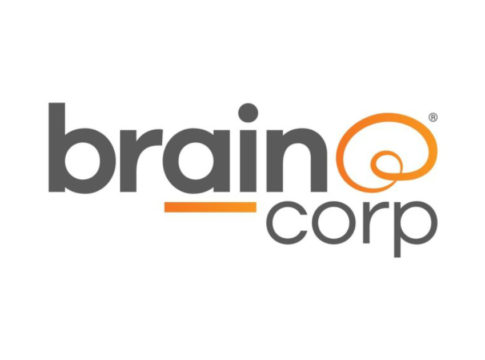Brain Corp, a San Diego-based AI company creating transformative core technology in the robotics industry, today announced that it achieved record sales and revenue growth in 2019 as retailers increasingly turn to robotic solutions to reduce costs and enhance in-store experiences.
Brain Corp achieved more than a 300 percent increase in revenue last year, fueled by a surge in interest for BrainOS-powered floor care machines by major retailers, including Walmart. The company also saw a 760 percent increase in global deployments. It now provides the intelligent backend for one of the largest fleets of its kind in the world––approximately 10,000 robots deployed or enabled.
“A growing number of retailers are turning to next-generation mobile robots to drive better productivity and improved customer experiences within their physical stores,” said Scott Carter, Chief Operating Officer at Brain Corp. “Last year was a landmark year for our customers and the retail robotics industry. We are looking forward to working with our strategic partners to accelerate and lead this trend in 2020.”
Other 2019 corporate highlights include:
- Recognition by ABI Research as the No. 1 Autonomy Solution Provider for mobile robotics.
- Inclusion in Forbes magazine’s top 50 list of America’s most promising artificial intelligence companies.
- New technology agreements with Alfred Kärcher SE & Co. KG, RPS Corporation (which manufactures Factory Cat and Tomcat cleaning equipment), Nilfisk, and other OEMs to build intelligent machines at scale. Along with Tennant Company and Minuteman International, a subsidiary of the Hako Group, Brain Corp now counts the top four commercial floor care OEMs as partners. Last year, a number of major brands and retailers adopted Brain Corp technology, resulting in a 6X increase in units sold.
- The North American launch of Whiz commercial-grade autonomous vacuum sweepers from SoftBank Robotics America and ICE Robotics. Whiz is powered by BrainOS. This followed the successful rollout of Whiz machines in Japan in 2018.
- An expanded relationship with Walmart to more than quadruple the number of robotic floor scrubbers, showcasing the value of smart automation in retail.
- Surpassing 10 billion square feet cleaned autonomously across three continents.
- The opening of European headquarters in Amsterdam to support the sale and deployment of autonomous floor care machines from OEM partners.
According to ABI Research, a global tech advisory firm, robotics companies like Brain Corp are poised to scale exponentially over the next five years as retailers embrace automation to stem rising costs and enhance efficiency. Last month, ABI forecast that more than 150,000 mobile robots will be deployed in brick and mortar establishments within the next five years for cleaning, inventory management and material handling.
Brain Corp is enabling this trend by making it easy for strategic OEMs to produce, deploy and support commercial robots at scale using its robotic AI platform. After starting with a universal, labor-intensive opportunity – floor care – the company is helping manufacturers expand into material handling, commercial vacuuming, shelf analytics and more. Brain Corp has helped manufacturers deploy more automated machines into the public spaces over the last three years than any other solution provider, according to internal market analysis.





